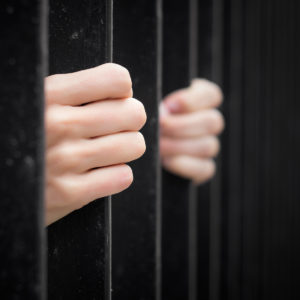U.S. jobless claims rose to a startling 6.6 million last Thursday, on top of over 3 million claims the week before. But raw numbers alone cannot capture the harm to some of the nation’s most vulnerable people — those who have made mistakes and are trying to put their lives back together.
It’s no secret that the restaurant industry will be one of the hardest hit in the wake of the pandemic, but what is perhaps less known is the symbiotic relationship between eateries that need workers and former prisoners who need jobs.
The restaurant industry is one that could support a figure like the late Anthony Bourdain, who wrote frankly about his years of drug abuse. The industry has long been known as a “place of second chances,” as a member of DC Central Kitchen’s board of directors explains in Eater, where anyone willing to work hard can find a place.
DC Central Kitchen is among several nonprofits across the country that work to provide culinary training and opportunities for people like then-student Deron Webb, who told Eater he took nothing for granted, interning at a restaurant kitchen following years of struggles after a theft conviction at 19 that had made it hard to get jobs and easier to go back to stealing. Deron and others like him found light at the end of the tunnel thanks to an industry that is now in jeopardy.
Some recent attention has focused on how the U.S. inmate population will be especially hard hit during the crisis. Jails and prisons with close quarters and notoriously bad hygiene are becoming petri dishes for the virus, and Attorney General William Barr recently urged the Bureau of Prisons to consider home confinement for people most at risk.
Just days later, the first federal prisoner died of the virus while serving a 30-year sentence for a nonviolent drug conviction.
Getting far less attention is how the aftermath will impact Americans who have served their time and begun contributing to society again.
Eventually, this immediate crisis will pass, but a web of burdensome restrictions is poised to make rebuilding pointlessly harder for millions of Americans who now might have to leave an industry that has welcomed them.
Some may try to find other jobs that allow similar flexibility as restaurants, only to find that these jobs, inexplicably, are shut off to them.
In Pennsylvania, Amanda Spillane is fighting for the right to practice cosmetology after the state’s licensing board decreed that her past, irrelevant conviction means she lacks the “good moral character” to give facials or tweeze eyebrows.
Even traditional jobs can be limited, such as in Rhode Island, where Meko Lincoln has overcome a life of addiction and wants to give back as a chemical dependency clinician. Unfortunately, the state’s licensing regime might not allow him.
As untold numbers of Americans are forced out of their jobs, more and more people like Amanda and Meko will run into licensing barriers that prevent them from providing for their families. Meanwhile, there is scant evidence that these rules accomplish goals like public safety.
What’s more, every American will feel the impact if lawmakers do not act swiftly to remove the barriers keeping people out of work.
Returning citizens already struggled with unemployment rates higher than during the Great Depression, and there is a clear link between not being able to find a job and returning to incarceration.
Governments are saddled with enormous costs of incarceration already. As officials grapple with historically high spending and massive unemployment, they can hardly risk raising these costs — not to mention burdening an already strained welfare systems when people cannot find employment.
It remains a mystery exactly how long officials will deploy measures like social distancing and shelter-in-place orders to try to contain the spread. What is no mystery is that eventually, millions of people will have to try to re-enter the workforce.
Government officials looking to smooth that transition should start with the obvious: Ending the rules that pointlessly keep returning citizens and other workers from doing so.

